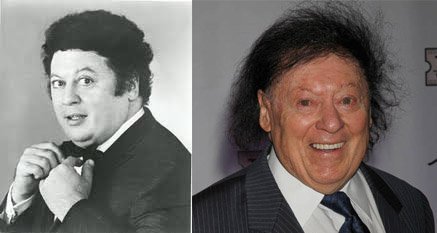Good super foggy morning with the temp at 45º.
Yesterday we started with light fog and gloom. The gloom left and we had blue sky and we topped at 82º.
Over the past weekend my granddaughter Sami Pendleton was in a gymnastics contest up in Portland. She is amazing and here are her scores....
And here she is doing the beam....
Picture of the Day.. a place in Norway back in 1888 and then today...
Interesting about chewing gum.......
Chewing gum is a soft, cohesive substance designed to be chewed without being swallowed. Modern chewing gum is composed of gum base, sweeteners, softeners/plasticizers, flavors, colors, and, typically, a hard or powdered polyol coating. Its texture is reminiscent of rubber because of the physical-chemical properties of its polymer, plasticizer, and resin components, which contribute to its elastic-plastic, sticky, chewy characteristics.
The cultural tradition of chewing gum seems to have developed through a convergent evolution process, as traces of this habit have arisen separately in many of the early civilizations. Each of the early precursors to chewing gum were derived from natural growths local to the region and were chewed purely out of the instinctual desire to masticate. Early chewers did not necessarily desire to derive nutritional benefits from their chewable substances, but at times sought taste stimuli and teeth cleaning or breath-freshening capabilities.
Chewing gum in many forms has existed since the Neolithic period. 5,000-year-old chewing gum made from birch bark tar, with tooth imprints, has been found in Kierikki in Finland. The tar from which the gums were made is believed to have antiseptic properties and other medicinal benefits. It is chemically similar to petroleum tar and is in this way different from most other early gum. The Mayans and Aztecs were the first to exploit the positive properties of gum; they used chicle, a natural tree gum, as a base for making a gum-like substance and to stick objects together in everyday use. Forms of chewing gum were also chewed in Ancient Greece. The Ancient Greeks chewed mastic gum, made from the resin of the mastic tree. Mastic gum, like birch bark tar, has antiseptic properties and is believed to have been used to maintain oral health. Both chicle and mastic are tree resins. Many other cultures have chewed gum-like substances made from plants, grasses, and resins.
Variations of early chewing gum worldwide
| Ancient civilization |
Chewing gum precursor |
| Ancient Greece |
Mastic tree bark |
| Ancient Maya |
Chicle |
| Chinese |
Ginseng plant roots |
| Eskimos |
Blubber |
| Native Americans |
Sugar pine and spruce sap |
| South Americans |
Coca leaves |
| South Asia (India) |
Betel nuts |
| Tropical West Africa |
Kola nuts |
| United States (early settlers) |
Tobacco leaves |
Although chewing gum can be traced back to civilizations around the world, the modernization and commercialization of this product mainly took place in the United States. The American Indians chewed resin made from the sap of spruce trees. The New England settlers picked up this practice, and in 1848, John B. Curtis developed and sold the first commercial chewing gum called The State of Maine Pure Spruce Gum. In this way, the industrializing West, having forgotten about tree gums, rediscovered chewing gum through the First Americans. Around 1850 a gum made from paraffin wax, which is a petroleum product, was developed and soon exceeded the spruce gum in popularity. To sweeten these early gums, the chewer would often make use of a plate of powdered sugar, which they would repeatedly dip the gum in to maintain sweetness. William Semple filed an early patent on chewing gum, patent number 98,304, on 28 December 1869.
The first flavored chewing gum was created in the 1860s by John Colgan, a Louisville, Kentucky, pharmacist. Colgan mixed with powdered sugar the aromatic flavoring tolu, a powder obtained from an extract of the balsam tree (Myroxylon), creating small sticks of flavored chewing gum he named "Taffy Tolu". Modern chewing gum was first developed in the 1860s when chicle was brought from Mexico by the former president, General Antonio Lopez de Santa Anna, to New York, where he gave it to Thomas Adams for use as a rubber substitute. Chicle did not succeed as a replacement for rubber, but as a gum, which was cut into strips and marketed as Adams New York Chewing Gum in 1871. Black Jack (1884), which is flavored with licorice, Chiclets (1899), and Wrigley's Spearmint Gum were early popular gums that quickly dominated the market and are all still around today. Chewing gum gained worldwide popularity through American GIs in WWII, who were supplied chewing gum as a ration and traded it with locals. Synthetic gums were first introduced to the U.S. after chicle no longer satisfied the needs of making good chewing gum. By the 1960s, US manufacturers had switched to butadiene-based synthetic rubber, as it was cheaper to manufacture. In the United States, chewing gum experienced a decline in popularity in the early 21st century, as it lost its association with counterculture and teenage rebelliousness. Others blamed smartphones reducing impulse purchases at the checkout.
If you want to read a lot more about chewing gum, go here:
If you have leftover corned beef from St. Patty's Day, here is a good recipe....
Corned Beef Quiche
1 (15½ oz) can corned beef hash or 1½ cups finely chopped left over corn beef
1/4 cup finely chopped onion
9 inch unbaked pie shell
2 eggs
1 container (4 oz) whipped cream cheese with chives
1 cup cottage cheese
1/4 tsp pepper
1. Preheat oven to 350 F
2. Combine corn beef & onion, use to line bottom of pie shell
3. In medium bowl, beat eggs until frothy. Add remaining ingredients, blend well and top the corned beef mixture.
4. Bake 50 minutes. Serve warm. Makes 6 to 8 servings.
I would also add with the corned beef, about 1 cup of cooked chopped cabbage.
Historically this date.....
2005 – Texas City Refinery explosion: During a test on a distillation tower liquid waste builds up and flows out of a blowout tower. Waste fumes ignite and explode killing 15 workers.
And births this date include....
Pretty and soft looking when she was young... then the tough look and those eyebrows!
.....he was always just too odd for my taste!
All I know. Nuff said. Have a good Wednesday. Ciao.
xo Sue Mom Bobo
Observed each year on March 23rd, National Puppy Day celebrates the unconditional love and affection puppies bring to our lives. Their cuddles and wiggles make us smile and without a doubt, there are squeals of delight when there are puppies around!
The day also brings awareness to the need for care of and homes for orphaned pups as well as to educate people about the horrors of puppy mills across the country. Puppies are a big responsibility. Be sure to consider everything involved and adopt from a shelter. The puppies there need love and a home just as much as any other and they grow into loyal pets, too!
According to the ASPCA, approximately 3.3 million dogs enter shelters every year. Some of these dogs come with litters of puppies. If you’re seeking a puppy to start your furry family, check the shelters first. When these abandoned and abused animals find their way to a shelter, each one needs a forever home and their potential is limitless.
NATIONAL PUPPY DAY HISTORY
National Puppy Day was founded in 2006 by Pet Lifestyle Expert, Animal Behaviorist and Author, Colleen Paige. Paige is also the founder of National Dog Day and National Cat Day.












